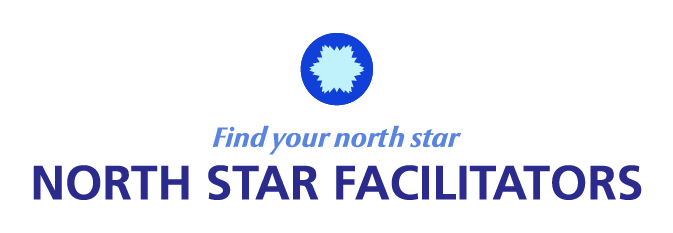What About Facilitation Makes a Good Leader?

In our Technology of Participation courses, we always start out talking about styles of leadership. There are hierarchical styles and facilitation styles. Neither one is better than the other but in my profession of facilitation, we are obviously focused on the facilitative leader framework. In this blog we’ll talk about some of the key ways a leader can benefit from facilitator competency. I also want to share some stories about each competency.
Leader as Advocate
If you know how to use good process facilitation skills, you can be the advocate for the lesser heard voices. You can uplift these voices for a richer dimension in all conversations. When any key perspective is left out of the conversation, everyone loses.

I remember an event where I facilitated a school division. I was really pleased that my client wanted to invite EVERYONE in the school division to think about the future of schools in that district. We had everyone from the custodians of the building, to the bus drivers, to the teachers, to the administrators and the superintendent who is the top leader of the organization. I was so touched by the stories of caring the custodians and bus drivers shared in this event. It was obvious to me that they were deeply engaged in the students lives. They heard things from the students that no one else heard. Imagine if we had not invited them, and allowed them to share what they had learned from the students. It took quite a lot of effort to convince them that we wanted to hear from them. No one had ever asked them before.
Leader as Listener
A leader who has learned process facilitation skills can deeply listen for clues and cues for what people really need and want. A really good listener just listens. They don’t think about their point of view. They suspend judgement. They listen as though someone is telling them a brand new incredible story. They put themselves inside the context of the speaker. The leader can then use that information to ask good questions. Ideally, the leader will use this information to help solve important problems. Ideally, the leader will also give credit to the person who shared their perspectives.

I was working with two leaders of different agencies who were trying to collaborate on their mission of conserving energy in their region. One of the leaders had a keen interest and insight about bringing the right people together between the agencies. This person understood the importance of not inadvertently fighting each other in this common mission. I was really impressed with this leader’s dedication and commitment to helping the staff understand the problem and dilemma. Once members from each agency learned that they were really wanting and needing the same thing, it unlocked their energy. They used this new energy to find extraordinary new ways to conserve more energy by working collaboratively.
Leaders as Questioner
A leader with a good understanding of process facilitation skills can offer brand new questions. Ideally these questions cause people to think in innovative ways. The question takes the person or group to whole new levels of thinking.

I can remember working with another educational client. They were deeply divided between the urban and rural areas. I knew that I couldn’t approach the conflict directly. I asked them, “What have you heard others say about the urban/rural conflict?” This question had exactly the impact I was looking for. Instead of asking them, “What do you know about it? or How is it affecting you?”, I kept the question less direct by focusing on what they had heard others say. This question allowed them to answer from a 3rd person perspective. A great leader not only asks good questions, but knows when to ask them and how to ask them.
Leader as Focuser
A leader with process facilitation skills can “gather” minds in a single united focus. This leader will use the skills above as well as many other engaging processes to help pull disparate views together. This allows people to see where they have commonality. Frequently facilitators use consensus building processes for this gathering of minds.

A client group I worked with needed to develop a campaign for electing more leaders with a strong sense of environmental responsibility. Everyone had a different view on whether and how to do this. Our team of facilitators first helped them recall their past accomplishments and their overarching mission. Helping them review this data proved to be the turning point. It helped them agree that this campaign strategy was worth pursuing. The rest was relatively easy. We guided them to deeply explore successes and failures of past campaign strategies. And from these past lessons, they developed a novel way to engage their members in this new campaign.
Leader as Aligner
A leader who applies process facilitation skills builds alignment and enthusiasm for ideas and visions. They know how to invite and encourage visionary thinking. They know how to help people share both bold and practical ways to create new futures together.

I was co-facilitating a strategic planning session with a city government that was grappling with rapid growth in the population. This growth included many diverse cultures. It had also resulted in unchecked development of new business and frustrating heavy traffic patterns in the community. There were also many concerns for safety. The leader of this city had the foresight to include the police, library, schools, business owners, property developers and many more in setting a vision for a new vibrant culture. In subsequent years they had over 5,000 citizens share their hopes for the future in 6 different languages. It was nominated as one of the 100 best places to live in the country. I didn’t have anything to do with those achievements but I was inspired by the original leadership’s commitment to help their community align their views. The process also helped keep the citizens engaged in implementing the vision. It is truly a living vision.
Conclusion
I think leaders need facilitation skills. It will help them make better decisions, creatively solve problems, expand their visionary thinking, transform conflict, engage their stakeholders, analyze data more holistically, and trust the group potential. If you want to know more about the competencies of a facilitator, check out these two certification competency sets:
ToP Core Competencies through Institute of Cultural Affairs
What did I miss in terms of benefits or skills of a facilitative leader?



Colleague Joshua Voon (Taiwan) offered these comments when I asked about why facilitation skills are important to leaders. Thank you, Joshua!
“Leading is about facilitating.
When we work with a team the co-ordinated design of how we work together can never be too efficient, for super efficiency removes the ability to be flexible when the unexpected happens. And the unexpected will happen. The conscious leader that is marshalling the team must enable breathing. The organisation, like a cell membrane, must have flex flow built in. And the leader becomes the cell membrane equivalent, holding the shape and space for the active human participants within the organisation to bring their best.
In motion this is symphonic, not just for the active participants, but for all who come in contact with the organisation.
Facilitating is an engaging *awakening process* that involves polarity based dialogues.
When we think of facilitation as a dance, it is knowing when to lead and when to follow. As a facilitator, knowing how to move in flow with other people while creating an energy system that gives meaning to vision is critically important.”